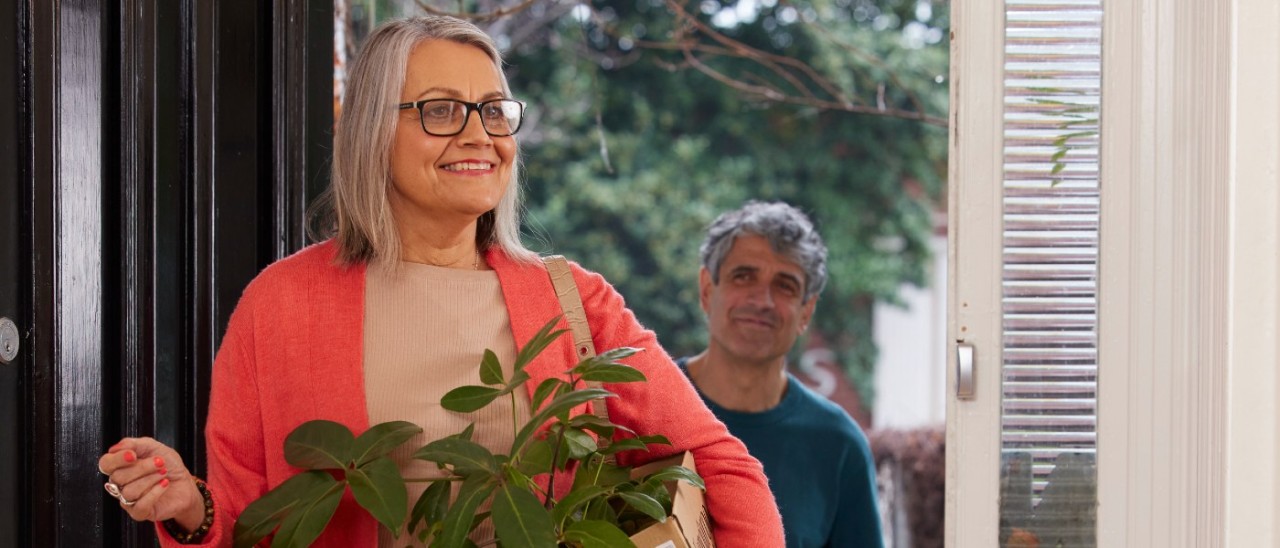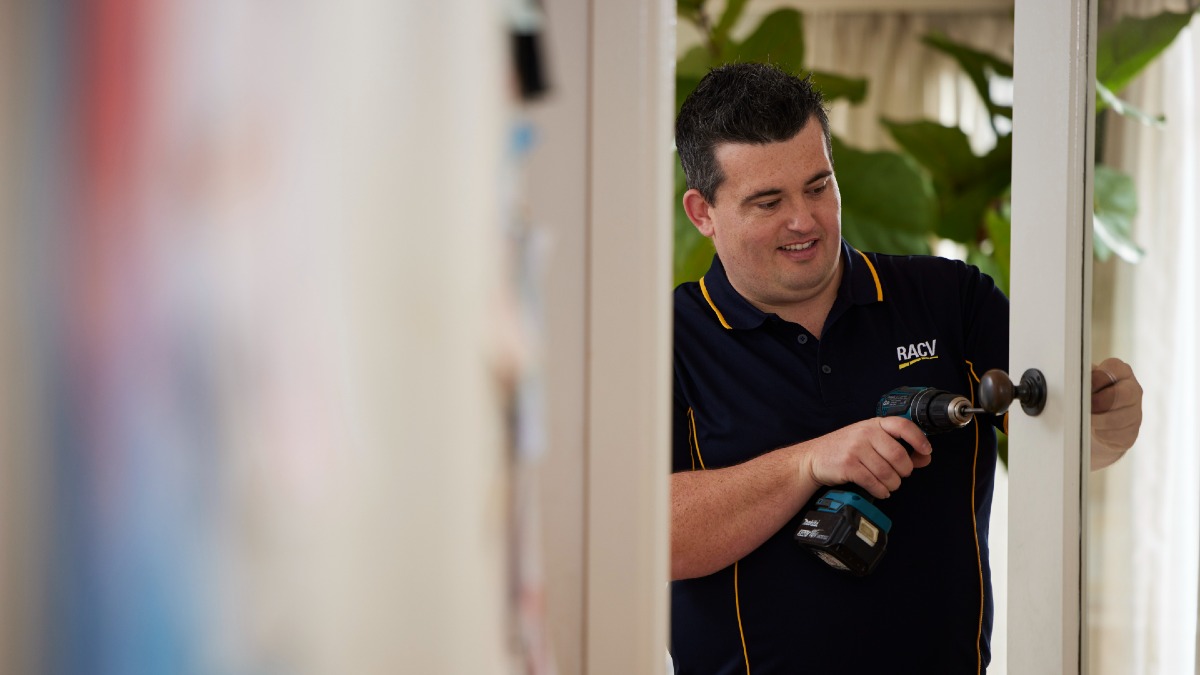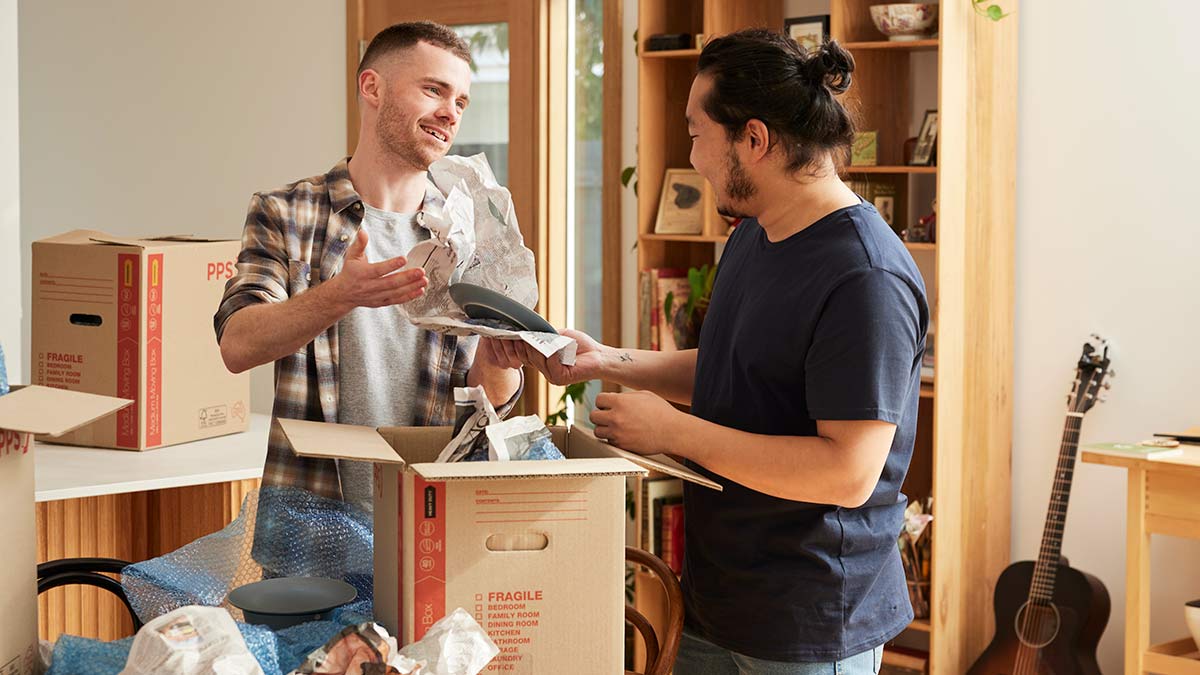Moving house? From packing boxes to protecting your contents, here’s how to successfully relocate your belongings to a new home.
Security tips for moving and protecting your new home

If you're moving house, it is crucial to ensure your new home is safe and secure. Use these tips to evaluate the security measures in place, and protect your possessions during the packing and moving process.
Moving into a new house – be it a rental or your own property – is an exciting time. But it can also be stressful as you navigate transporting your life and possessions to a new location.
Along with connecting your energy supply and updating your home and/or contents insurance, you should evaluate the security measures in place, including locks on doors and windows, alarm system, and outdoor lighting. Taking a few extra steps before and during the moving process can smooth your transition and help protect what’s important to you.
Home safety and security tips when moving house
Check your locks
Before moving into your new home, check that all external entry points have locks that are in good working order.
Secure door locks are often the first line of defence against theft, with strong door locks acting as a deterrent to opportunistic thieves looking for an easy target. For an extra level of security, have the locks changed by a qualified locksmith, which prevents past residents gaining access.
If there is an alarm or security cameras, check these are functioning. You may decide to install a new security system, with an alarm system, security cameras, and professional monitoring, before moving in.
Windows can be overlooked when it comes to home security, despite many burglars gaining access to homes this way. Ensure all openable windows have strong, working locks. Once you’re settled into your new place, you may consider installing double-glazed windows which not only help insulate your home but are harder for thieves to smash.
Don’t forget to secure your shed or garage either. These outdoor buildings often contain items thieves want to steal, such as cars, bikes and power tools, yet are less secure than your house. Even adding a padlock can help deter thieves.
If you’re moving into a rental, the minimum standards in Victoria require that rental providers fit all external doors with a deadlock (see the Consumer Affairs Victoria website for details and what exceptions apply). Openable windows must also have a working lock or latch.

Hiring a qualified locksmith to change your locks can provide an extra level of security when moving into a new place.
Secure your vehicles
Using their own vehicle, or hiring a van, truck or trailer, is a popular way to save money when moving house.
If you transport your possessions to your new home by yourself, there’s always a risk of items being lost or stolen. Simple measures such as keeping all vehicles locked when unattended can deter opportunists, as can keeping valuable, easy-to-steal objects like phones and laptops out of sight. Keep the keys to your vehicle on your person, not in the car or in another easily accessible location.
Using an online tool like How Safe is my Vehicle from Neighbourhood Watch can help motorists determine the security of their vehicle and suggest tailored tips to improve its safety.
Trailers can also be a target for theft due to their resale value and mobility. The use of wheel clamps, a hitch lock or a trailer tongue lock can deter thieves. Parking your trailer off the street or with the hitch against a wall can further discourage trailer theft.
Update your home insurance
Updating your details with your insurer before moving can help provide peace of mind should an insured event occur, such as a burglary.
Many insurers allow you to update your details ahead of time, meaning you can advise them of when you need your policy coverage to end at one property and start at the next.
When moving homes within Australia, an RACV Home Contents Insurance policy covers the contents at both addresses for up to 14 days from the day the policy holder starts moving. Conditions apply and the policy holder must provide the details of their new permanent home within 14 days from when they start moving. See the Product Disclosure Statement for details.
Moving house may also mean you’ll need to consider changing your policy type. For example, if you’re moving from a rental to an owner-occupied property, this may be the first time you’ve needed to consider building insurance in addition to contents insurance.
Read more: What you can and can’t do as a renter in Victoria.

Packing your things to move provides a great opportunity to review your home insurance coverage.
Beware of cyber risks and scams
The process of buying a new property or moving into a new rental means you’re often communicating with many different people and organisations, as well as potentially transferring large sums of money. These factors, along with the stress of moving, can make you vulnerable to cyber security risks and scams.
Be wary of scams when moving home, as many scammers can present as legitimate at first glance. Never click suspicious links or provide personal details. Use strong, unique passwords or phrases and regularly update your devices.
If your new home comes with smart home features, such as smart doorbells, door locks or security cameras, be mindful that these can potentially be hacked. Do your research into any existing smart devices at your new place to ensure you’re comfortable with the cybersecurity measures the parent company has in place.
Introduce yourself to your neighbours
One of the easiest and cheapest ways to improve security at your new address is to introduce yourself to your neighbours. This means they can alert you if they see someone at your house they don’t recognise.
Establishing a good relationship with your neighbours can bring additional benefits, such as having someone who may be willing to bring in your bins, collect your mail or water your garden if you're not there – signs, if neglected, that can alert thieves to an empty home.
Don’t neglect your old home
While the focus might be on moving your things into your new place, it’s important not to forget entirely about what’s happening in your previous address.
If you’re not moving everything in on the same day, make sure the property you’re vacating is secure during the day and overnight.
In Victoria, the vendor is typically responsible for the property until settlement – so if you’re selling, make sure the property is covered by insurance until the settlement date in case an insured event occurs.
The information provided is general advice only. Before making any decisions please consider your own circumstances and the Product Disclosure Statement and Target Market Determinations. For copies, visit racv.com.au. As distributor, RACV Insurance Services Pty Ltd AFS Licence No. 230039 receives commission for each policy sold or renewed. Product issued by Insurance Manufacturers of Australia Pty Ltd ABN 93 004 208 084 AFS Licence No. 227678.
